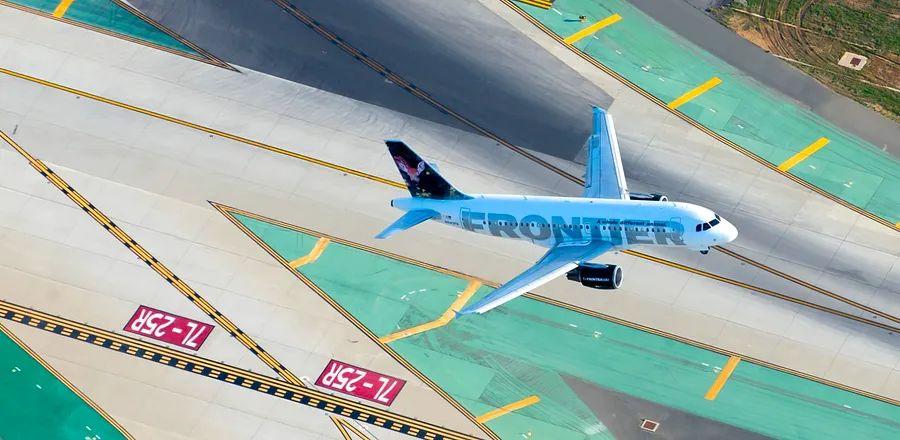Six Airlines Ordered to Pay Over $600 Million in Refunds to Passengers

On Monday, the U.S. Department of Transportation (DOT) announced that six airlines must pay a total of $622.3 million in refunds to passengers for flights that were either canceled or significantly altered.
“Experiencing a flight cancellation is frustrating enough, and you shouldn’t have to negotiate or wait for months to receive your refund,” said U.S. Transportation Secretary Pete Buttigieg. “When a flight is canceled, passengers should receive their refunds without delay. If that doesn’t happen, we will take action to ensure airlines are held accountable for American travelers and that passengers get their money back.”
This enforcement action comes as the DOT faces a flood of consumer complaints regarding air travel, coinciding with a rise in canceled and delayed flights this year, attributed to an airline industry still short-staffed and struggling to meet the increased demand for air travel following the pandemic.
By the end of October, the DOT reported receiving 7,243 consumer complaints in August, a staggering 323 percent increase from the complaints filed in August 2019. Of these, about one-third were specifically related to delays, cancellations, and flight schedule problems.
During the pandemic, as airlines and passengers dealt with a surge of canceled flights due to border closures and health regulations, carriers preferred to offer future flight credits instead of cash refunds, largely due to the significant financial losses they were incurring. In many cases, they justified this by claiming that the pandemic circumstances were beyond their control, allowing them to issue credits rather than refunds.
However, as many pandemic-related restrictions eased in 2022 and international travel became more viable, many of the flight delays and cancellations seen this year were due to airline-driven issues like staffing shortages and other operational difficulties—not pandemic-related factors. U.S. law mandates that a refund is necessary when a traveler opts not to fly because an airline cancels, delays, or significantly alters a flight due to reasons originating with the airline, such as overbooking or inadequate staffing (weather issues are considered beyond the airline’s control). The DOT emphasizes that “it is unlawful for an airline to refuse refunds and instead offer vouchers to such consumers.”
Now, the DOT is intensifying its enforcement of this requirement.
Along with ensuring that customers receive the refunds they are entitled to, the DOT announced on Monday that it is imposing over $7.25 million in fines against six airlines for excessive delays in processing refunds.
Here are the airlines facing fines and the amounts they have been ordered to pay in refunds:
- Frontier: $222 million in refunds issued; $2.2 million fine
- Air India: $121.5 million in refunds issued; $1.4 million fine
- TAP Portugal: $126.5 million in refunds issued; $1.1 million fine
- Aeromexico: $13.6 million in refunds issued; $900,000 fine
- El Al: $61.9 million in refunds issued; $900,000 fine
- Avianca: $76.8 million in refunds issued; $750,000 fine
The positive news for consumers is that hundreds of thousands of passengers have received refunds since the DOT increased its enforcement efforts, as reported by the agency. The DOT also indicates plans to impose additional fines this year on airlines that breach consumer protection laws.
In August, the DOT proposed new regulations for airlines that could significantly strengthen passenger rights, with the public invited to provide feedback on the proposal until December 16 to help drive the changes.
The proposal includes four main objectives:
- It would mandate airlines to issue refunds if the departure or arrival time is altered by three or more hours for domestic flights or six or more hours for international flights.
- It would require refunds when airlines change the passenger’s departure or arrival airport or add additional stops to an itinerary.
- It would require refunds when airlines cause “a significant downgrade” in the travel experience by switching to a different aircraft type.
- It would ensure that airlines provide future travel credits that do not expire for passengers unable to travel due to health and safety concerns during a pandemic or when borders are closed.
These rules would extend to tickets that are generally nonrefundable, including lower-cost basic economy fares.
If implemented, the new regulations “would represent the most significant enhancement to traveler protections in years,” stated Scott Keyes, founder of the flight deal tracking service Scott’s Cheap Flights.
Public feedback can be submitted via this online form.
The DOT has also introduced a new consumer website that provides travelers with detailed information about their rights regarding flight cancellations and delays. The dashboard offers a comparison of major domestic airlines’ policies on topics such as whether carriers provide meals for delays exceeding three hours or rebook passengers’ flights without extra charges.
Evaluation :
5/5



